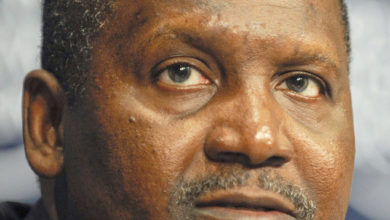Business
Eskom: South African President Cyril Ramaphosa Says Government Won’t Let Eskom To Fail
Eskom generates more than 90 percent of South Africa's electricity supply

The ailing South African electricity power utility Eskom, which generates more than 90 percent of the country’s electricity supply, is plagued by a number of issues including increasing debt, low revenues, escalating overhead costs, low-quality coal stockpiles, and deteriorating power plants.
The power utility has already massed R419bn of debt in the past 10 years and the same is projected to rise to R600bn in the next five years if appropriate measures to control the debt levels are not taken. If the situation remains unchanged then chances are that the embattled power utility might turn into a complete failure in the near future.
While addressing business leaders in India last week, the South African President Cyril Ramaphosa ensured the government will not allow the power utility to fail. He said that the plans to resolve the challenges facing Eskom will be announced and put to implementation soon.
During the forum, Indian business leaders raised concerns surrounding Eskom saying that it seems risky for them to come to invest in the country. President Ramaphosa assured them that his government is coming up with more plans to rescue Eskom.
“And what I can tell you is that we’re coming up with a number of proposal schemes and solutions as we get back home,” the South African President said, reported Eye Witness News. “We’re going to immediately embark on resolving the challenges.”
While he acknowledged that Eskom’s inability to deliver uninterrupted electricity is a threat to businesses and the economy as a whole, he assured that the government won’t let the power utility to fail.
“Eskom is just too big to fail; too big to allow us to see it failing and we’re, therefore, not going to allow it to fail,” Ramaphosa said.
Ramaphosa was invited to be India’s chief guest at its spectacular Republic Day parade.






